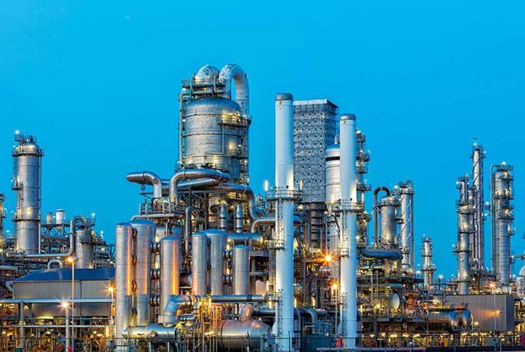
While oil and gas are available in abundant supply, they must be extracted from beneath the surface of the earth and ocean floors. This requires the use of various types of equipment such as pumps, drills, separators and shakers, which are made up of many metal parts and components. The combination of harsh environments and the constant pounding caused by drilling and related processes adds a heavy toll on extraction equipment. Consequently, oil and gas equipment manufacturers rely on metal finishing to protect their products and prolong their lifespan.
Passivation can remove surface contaminants that are byproducts of manufacturing processes such as metal fabrication, welding, heat treating and grinding. Often used as a corrosion prevention process for stainless steel, passivation entails treating the surface with a mild oxidant to remove free iron and other foreign materials. This produces a corrosion-resistant passive film that can withstand environmental elements such as moisture and air that combine to form surface rust. Passivation can protect metal parts and components from corrosion by shielding them with an external layer.
Although stainless steel offers good corrosion resistance on its own, passivation will provide the extra layer of corrosion protection that is essential for preventing the onset of rust in harsh brine environments. Some grades of stainless steel are more corrosion-resistant than others and will benefit even more from the passivation process. Passivation requires a thorough cleaning of the surface to ensure proper coverage of the oxidizing acid. A passive layer on the surface can be achieved by either pickling or passivating the stainless steel. The actual passivation bath for stainless steel may consist of either a nitric acid- or citrus acid-based solution in various concentrations and temperature ranges. The pickling bath is most effective using a combination of time and temperature in a bath of hydrofluoric acid and nitric acid in specific concentrations.
Passivation Benefits for the Oil and Gas Industry:
- Chemical film barrier against rust
- Extended life of the product
- Removal of contamination from product surface
- Reduced need for maintenance
Shop and Field Services Available
- Pickling Passivation
- Citric Passivation
- Nitric Passivation
- Gel Passivation for stainless steel lined tanks
- Electropolishing
- Mechanical Polishing
- Complete tank refurbishment
